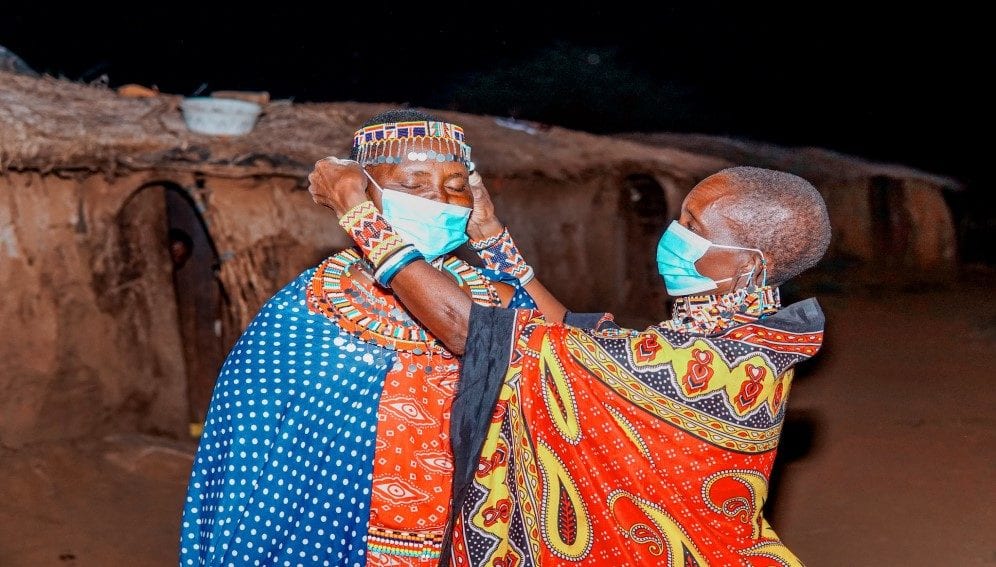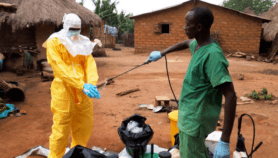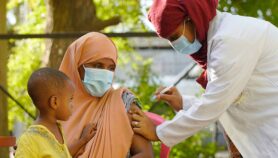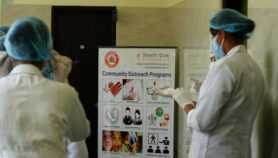16/03/21
Tanzania makes COVID-19 U-turn but secrecy persists

By: Syriacus Buguzi
Send to a friend
The details you provide on this page will not be used to send unsolicited email, and will not be sold to a 3rd party. See privacy policy.
Tanzania has made a U-turn and started advocating COVID-19 prevention measures after months of denying the pandemic but scientists are concerned about the lack of mass testing and data on the disease.
COVID-19 statistics in Tanzania have remained a top secret since last May when 509 cases and 21 related deaths were reported in the World Health Organization’s situational update on the disease.
Since then, President John Magufuli has repeatedly downplayed the pandemic, doubted vaccines and advocated traditional medicine and faith healing after declaring the country “COVID-19 free” in June last year.
“If there was data, then we would, for example, have a cause for raising further alarm about smoking and COVID-19.”
Lutgard Kagaruki, Tanzania Tobacco Control Forum
“Tanzania has no plans of procuring COVID-19 vaccines,” Dorothy Gwajima, the country’s minister of health, said at a press conference last month (1 February), a day after the president advised against the jabs. She encouraged the use of unproven traditional remedies such as steam inhalation.
But last month (21 February) President Magufuli made a U-turn and urged the public to take precautions against COVID-19. He spoke during a church service he attended in Dar es-Salaam, the country’s commercial capital.
Even then, scientists appear worried because of the lack of COVID-19 data and the country’s high infection rate.
“If you want to win any war, you have to explore the strength of your enemy. Likewise, we need to establish the magnitude of COVID-19 in Tanzania,” Leonard Mboera, a senior research scientist at SACIDS Foundation for One Health in Tanzania, told SciDev.Net. “What’s the burden of disease or infections?”
The U-turn followed a noticeable increase in unexplained deaths since the beginning of this year, raising public health concerns in the country.
Within one month, 25 lawyers have died (since January 2021), with some having tested positive for COVID-19, said the Tanganyika Law Society in its 19 February statement, accusing the government of cover-up.
Seif Sharif Hamad, the first vice-president of Zanzibar, who died on 17 February, was the only high-profile government leader to have made it public that he tested positive for COVID-19.
Death announcements are widespread on social media. For over a month, the duration of a daily death announcement segment at a leading radio station Radio One has been extended to 50 minutes, up from the usual ten minutes, confirmed a journalist who prefers to remain anonymous.
Elisha Osati, a specialist physician and the outgoing past president of the Medical Association of Tanzania, said: “For a long time, people have kept debating whether the virus existed in Tanzania or not instead of taking precautions against it.
“Given what we are seeing in hospitals currently, it means that many people have been infected.”
A doctor at a public hospital in the country who asked to remain anonymous, added: “We had been directed not to speak about COVID-19. Most people have died but we could only say they contracted pneumonia or simply had breathing problems.”
Tedros Ghebreyesus, director-general of the WHO, has asked Tanzanian authorities to take robust action against the pandemic, saying Tanzanians travelling to other countries could spread the virus beyond its borders.
“This situation remains very concerning. I renew my call for Tanzania to start reporting COVID-19 cases and share data,” he said in a statement last month (20 February), reiterating his advice for the country to prepare for vaccination.
Without data, advocacy programmes on COVID-19 remains in limbo and no evidence-based decisions are made to curb the pandemic, an expert told SciDev.Net.
Lutgard Kagaruki, the executive director of Tanzania Tobacco Control Forum, explained: “If there was data, then we would, for example, have a cause for raising further alarm about smoking and COVID-19.”
The Ministry of Health, Community Development, Gender, Elderly and Children neither declined nor confirmed when asked about the release of data but emphasised that it is now advocating precautions such as wearing face masks, avoiding crowds and hand hygiene.
Gerard Chami, head of government communications at the health ministry, replied in a text message to SciDev.Net: “Are the data [protecting] our citizens?”
This piece was produced by SciDev.Net’s Sub-Saharan Africa English desk.















